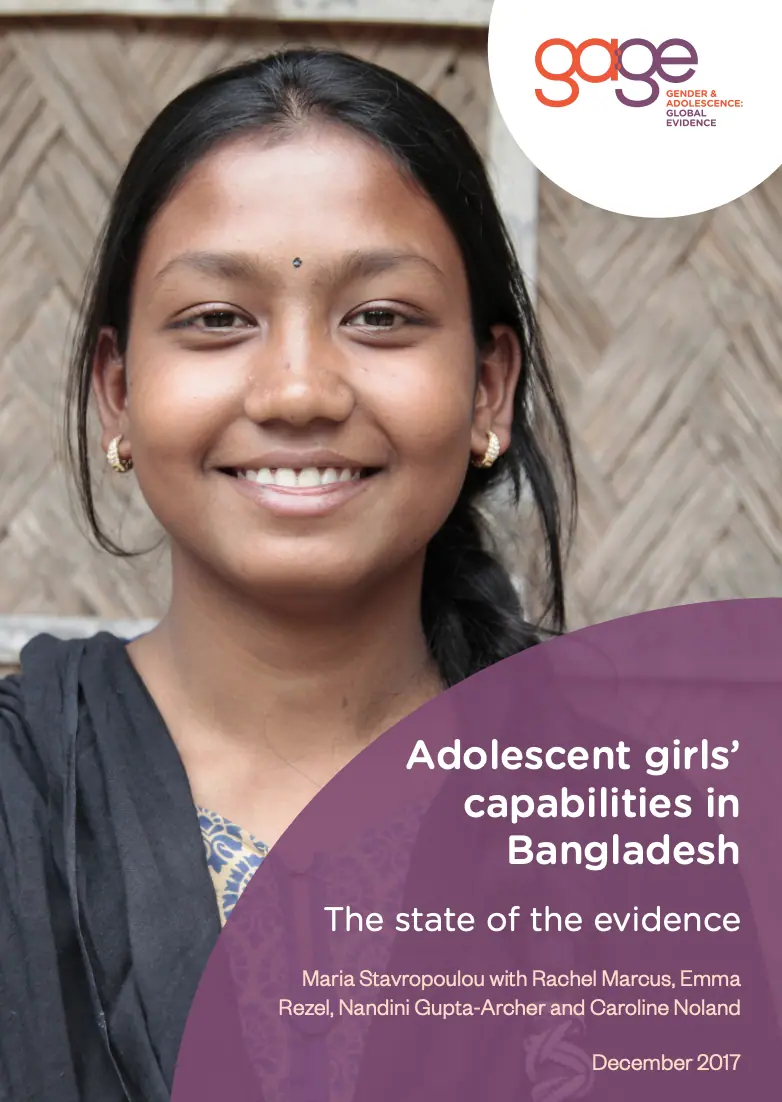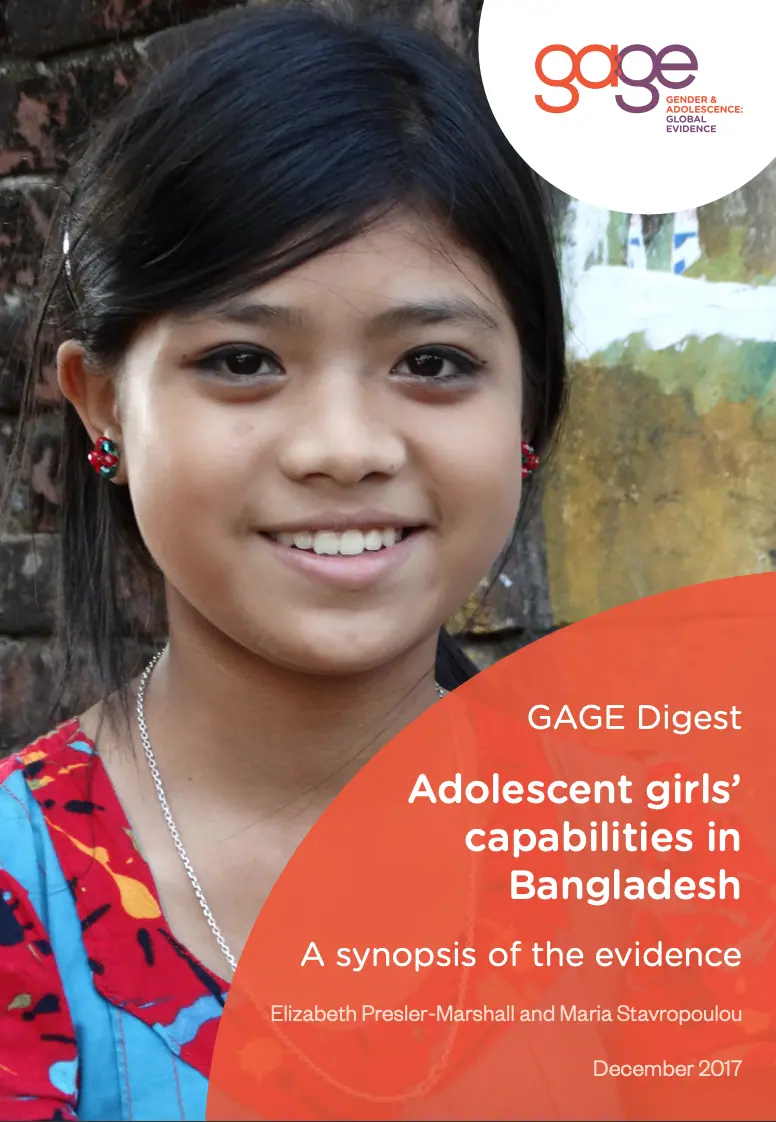
The lives they lead: exploring the capabilities of Bangladeshi and Rohingya adolescents in Cox’s Bazar, Bangladesh
publication
The lives they lead: exploring the capabilities of Bangladeshi and Rohingya adolescents in Cox’s Bazar, Bangladesh
30.11.2019 | Bangladesh
Country
Bangladesh
Capability domains
Bodily integrity and freedom from violence
Audience type
Policy maker or donor, Programme designer or implementer
Year of publication
2019
Authors
Silvia Guglielmi, Jennifer Muz, Khadija Mitu, Muhammad Ala Uddin, Nicola Jones, Sarah Baird, Elizabeth Presler-Marshall
Since August 2017, more than 700,000 Rohingya crossed the border into Bangladesh, joining another half million that made similar journeys in previous years to escape decades of systematic discrimination and human rights violations in Myanmar. The nearly three-quarters of a million refugees who arrived in the autumn of 2017 – over half of whom were children under the age of 18 – have predominantly settled into 32 camps located in two flood-prone sub-districts of Cox’s Bazar, which is situated in Chittagong Division along Bangladesh’s border with Myanmar. These two sub-districts (Ukhia and Teknaf) now have populations that are 76% and 29% refugees respectively.
Suggested citation
Guglielmi, S., Muz, J., Mitu, K., Ala Uddin, M., Jones, N., Baird, S. and Presler-Marshall, E. (2019) 'The lives they lead: exploring the capabilities of Bangladeshi and Rohingya adolescents in Cox’s Bazar, Bangladesh'. Policy Brief. London: Gender and Adolescence: Global Evidence. (https://www.gage.odi.org/publication/the-lives-they-lead-exploring-the-capabilities-of-bangladeshi-and-rohingya-adolescents-in-coxs-bazar-bangladesh/)


